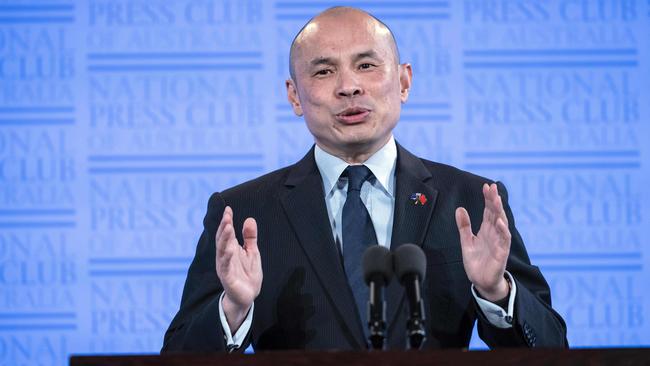
China is quite happy for us to know about its threats to our exports. That’s why it sends its diplomatic flunkies to issue public warnings. Its ambassador here, Cheng Jingye, in April told readers of The Australian Financial Review Chinese consumers might abandon Australian beef, wine and tourism because of calls by Australia for an investigation into the source of the coronavirus. It’s about loss of face for China.
What China is not happy about is media reporting of its secretive foreign interference operations, including its regular mass cyber hacking, or stories about its domestic surveillance and repression policies inside China.
This newspaper’s investigations writer Sharri Markson and Kylar Loussikian late last month published a series of pieces starting on August 24 that revealed the operation on Australian universities of the Chinese-funded Thousand Talents Program. China pays upwards of $150,000 a year to some of these Australia-based researchers. Academics in the Thousand Talents Program have been found, in some instances, to be secretly providing intellectual copyright for their work to China.
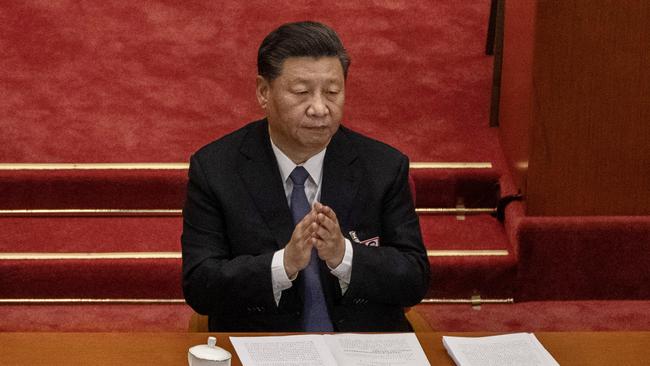
The Chinese Academy of Engineering Physics has recruited 57 researchers specifically to help modernise China’s military, including its nuclear weapons arsenal, according to separate Australian Strategic Policy Institute analysis.
The stories should have been shocking to the nation’s universities but, coming as they did after more than a year of controversy about the role of Confucius Institutes, the sector was largely silent.
The Australian’s stories were the latest in a series of revelations during the past year of attempted interference in our domestic affairs, specifically in the cases of Victorian federal Liberal MP Gladys Liu, NSW state Labor MP Shaoquett Moselmane and a 2019 NSW Independent Commission Against Corruption inquiry into the payment in 2015 to former NSW Labor state director Jamie Clements of $100,000 cash in an Aldi bag by Chinese billionaire Huang Xiangmo.
China was already bristling at Australia’s 2017 ban on Huawei from participating in the 5G network rollout and criticism from Foreign Minister Marise Payne and her predecessor Julie Bishop of China’s expansion into the South China Sea.
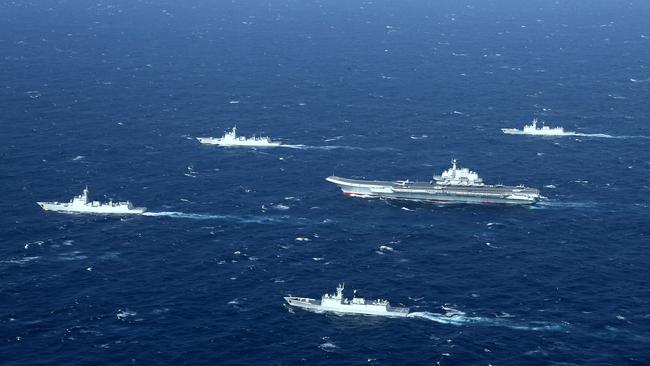
We may have a celebrated free trade agreement with the world’s No 2 economy, but tensions were already simmering when Prime Minister Scott Morrison publicly called for a World Health Organisations investigation into the source of the COVID-19 pandemic and how the virus entered the community of Wuhan.
It will not have escaped the notice of the Chinese embassy when it was preparing for a National Press Club address by deputy ambassador Wang Xining on August 27 that Markson three days earlier had published the Thousand Talents story and was only a couple of months earlier the author of a controversial series of articles asking whether the coronavirus could have escaped from one of two virus research laboratories in Wuhan.
I think it is no coincidence Wang’s speech was much more conciliatory than the earlier words of his ambassador. Indeed, this newspaper’s Robert Gottliebsen on September 2 described Wang’s speech as an olive branch showing Australians how “to repair the relationship with China”.
Wrote Gottliebsen: “The China peace plan as set out by Wang starts with these words, ‘We should respect each other’s sovereignty and territorial integrity and refrain from interfering in each other’s internal affairs. China does not interfere in Australia’s internal affairs. Nor does it have any intention to change Australia’s political and social culture.”
Like much of the business journalism commentariat and exactly like business people who make money from China — think Andrew Forrest and Kerry Stokes — Gottliebsen was making the financial self-interest argument. Fair enough. A medium power such as Australia needs to understand its own limitations when dealing with a giant economy that is also its largest trading partner and a nuclear power.
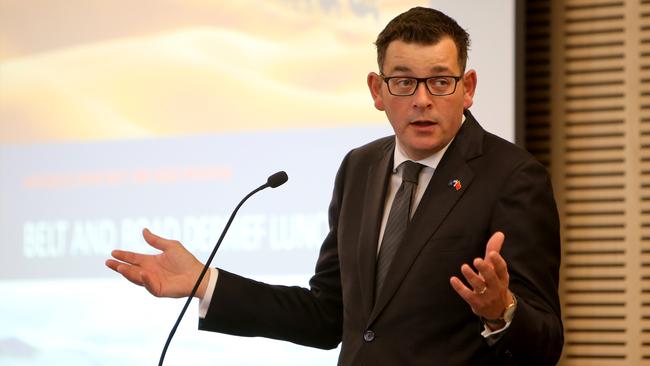
Yet Wang was talking rubbish and Australians don’t take kindly to bullying. In politics, media, our educational institutions and our trading relationship, the evidence is China absolutely does “interfere in Australia’s internal affairs”, to use Wang’s words. The examples above are part of the evidence, but there is plenty more.
How about signing a Belt and Road Initiative agreement with Victoria when the federal government had already specifically refused to do so?
Why, for example, have married ABC journalists Sarah Ferguson and Tony Jones been blocked from taking up their appointments in China, announced almost a year ago. ABC executives won’t say so publicly but privately admit Ferguson is being punished for a series of Four Corners stories by investigative journalist Nick McKenzie on Chinese interference in Australia.
And what message to Australian journalists was being sent last week by the detention without charge of Australian national Cheng Lei, working for English-language business television network CGTN in Beijing?
Given the ABC’s good record on exposing China’s excesses on Four Corners and Foreign Correspondent, it was a pity that Q&A last Monday night devoted so much time to making excuses for China — led by former 7.30 Report host Kerry O’Brien and former West Australian premier Colin Barnett. O’Brien used the moral equivalence furphy, while Barnett made the financial self-interest argument.
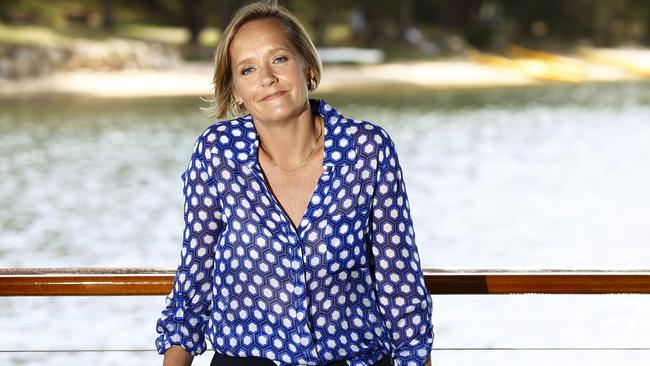
While he did not excuse China, O’Brien was sure politicians had more to answer for in their relationships with the US, claiming many took CIA-funded trips. Sydney Institute director Gerard Henderson pointed out the next night on Sky News that those trips were usually paid for by the State Department rather than the CIA. O’Brien’s is an argument that has been made in our universities right back to the 1950s as academics used the excesses of Washington and Wall Street to defend the crimes of the former Soviet Union.
So here’s the thing about national self-interest and China. Morrison was right last month when he told the Aspen Security Forum that Australia remained a strong ally of the US but our position on China was not the same as America’s. He gave the lie to the Labor/media left argument that Australia is being punished by China for acting as America’s deputy sheriff in Asia. “To assume Australia and the US have an identical outlook on China would be false … while we are highly integrated and aligned on our overall macro view, how we pursue that … will always be uniquely Australian,” Morrison said.
“One of the criticisms that is made of Australia is that somehow it is tied inextricably to the precise rhetoric of what is done in the United States. Now that is simply not true.”
Journalists need to understand this, not swallow politicised lines about China and the US. This is the biggest story in the world and the public is hungry to know what China is up to here and in other countries that are facing similar interference.



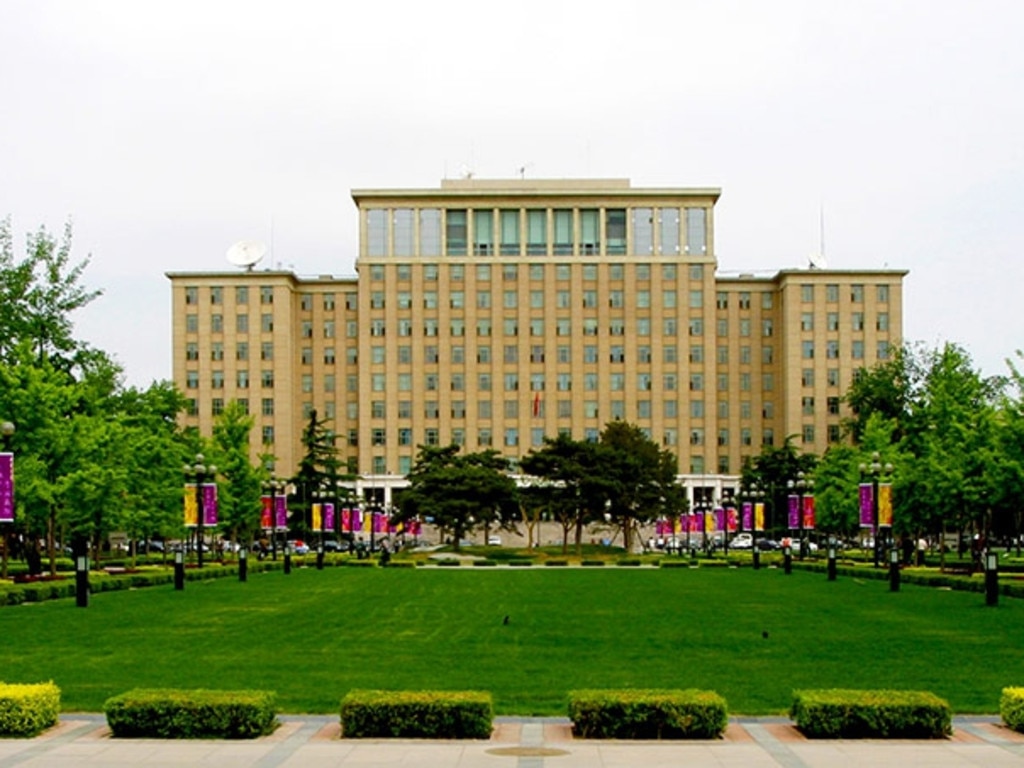
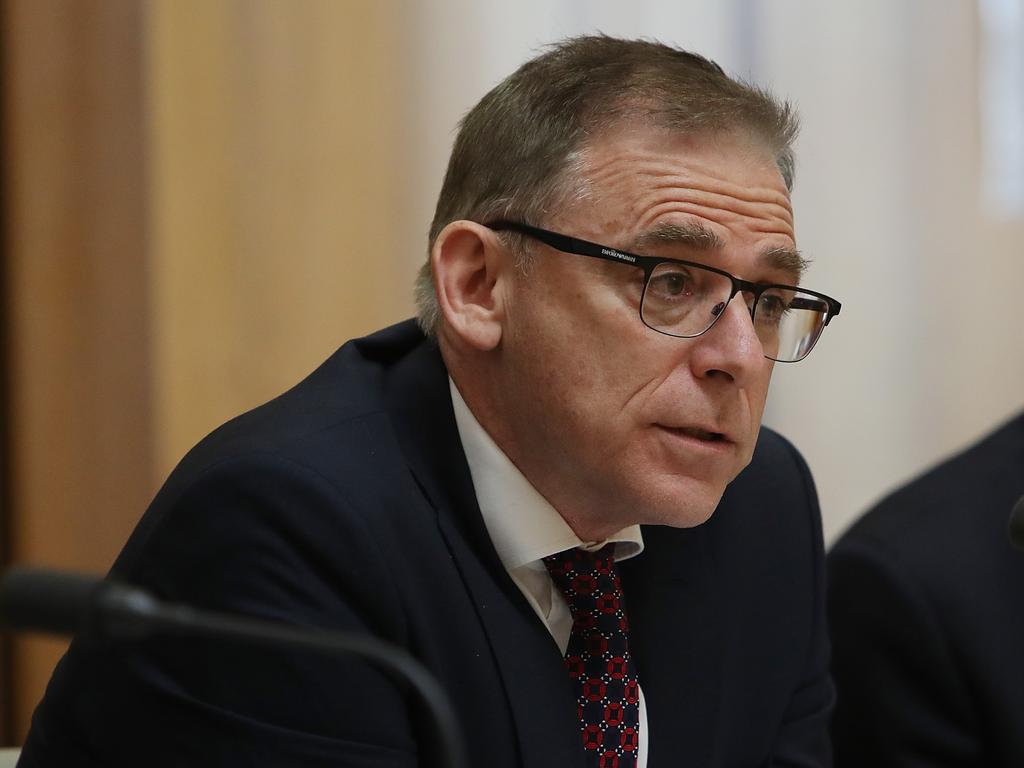
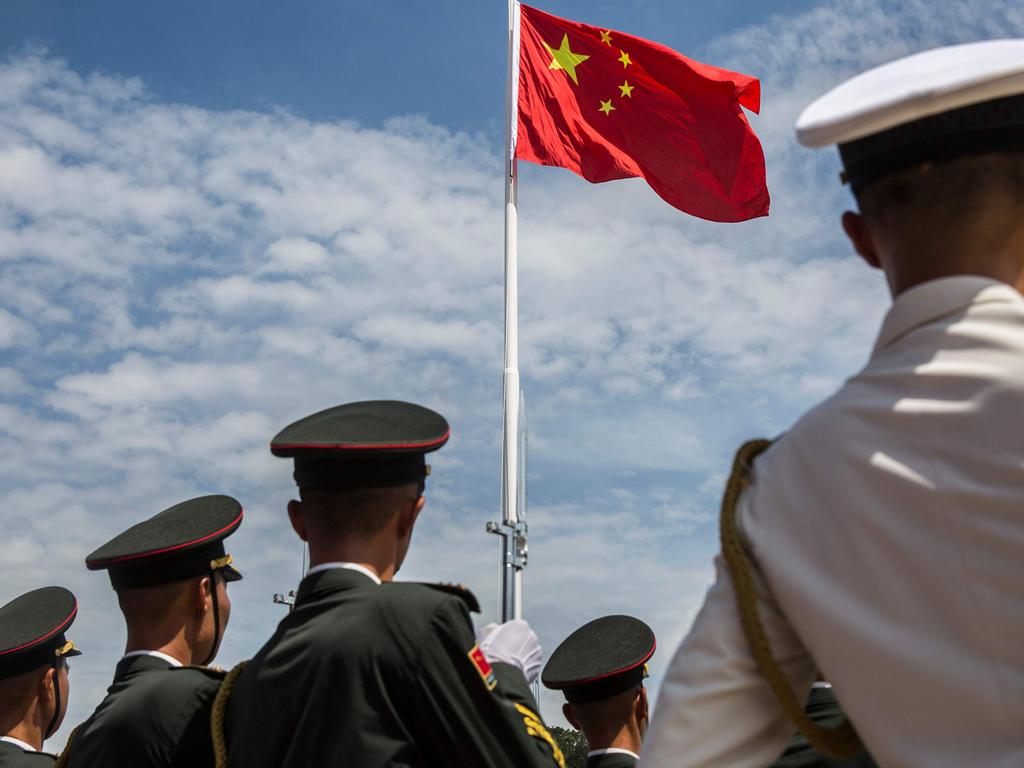


Strong news reporting is one of Australia’s best defences against Chinese bullying.